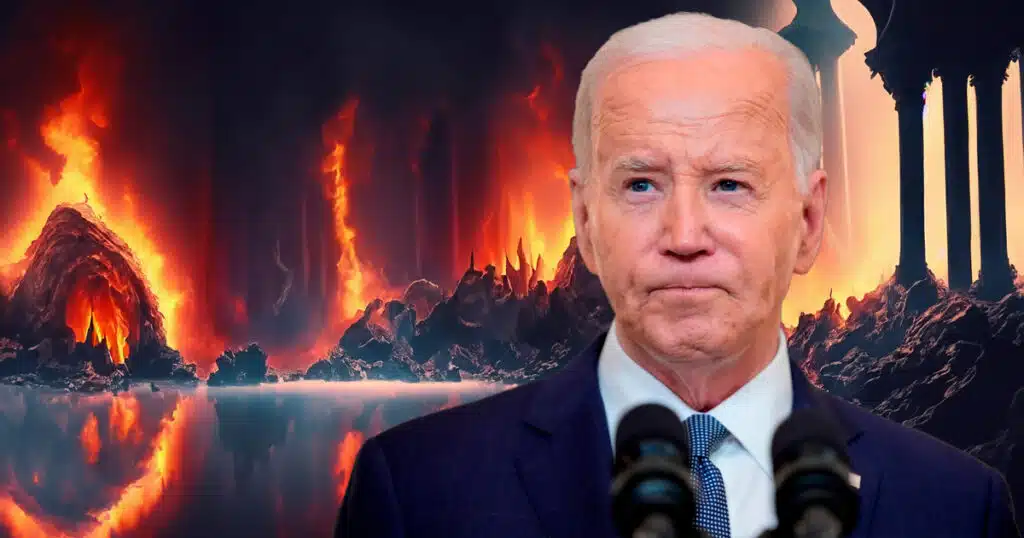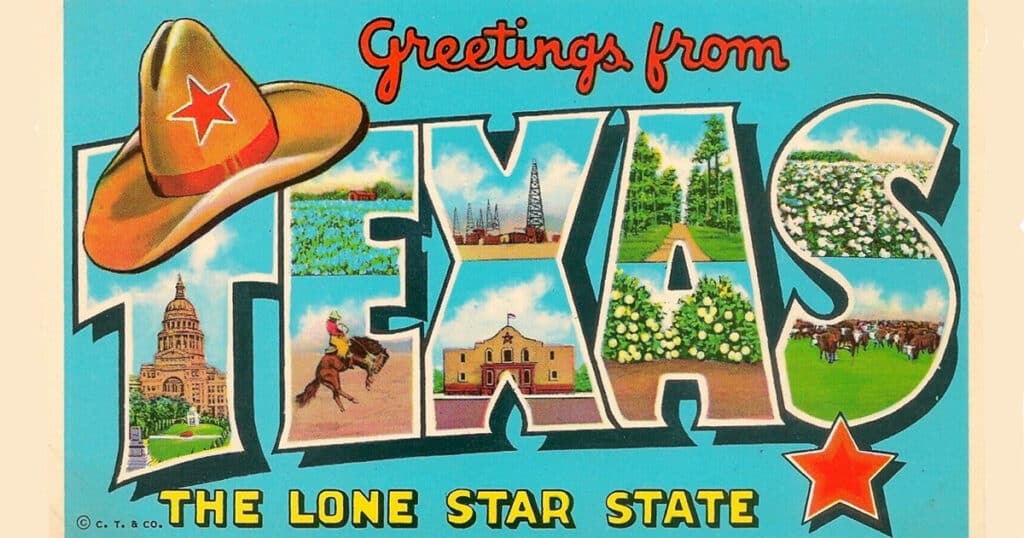
Joe Biden’s Legacy Is Significant. It Isn’t What He Thinks It Is.
I’ll confess that I didn’t want a second of Joe Biden’s self-congratulatory farewell speech last night. I was busy watching the last couple of episodes of American Primeval, the Netflix show about the 1857 Mountain Meadows Massacre and its aftermath, and wondering how Mormons could possibly go from that bloodthirsty lot to Mitt Romney in a century and a half.
In any event, there was less horror to be found in American Primeval than in a consideration of Joe Biden’s four-year disastrous tenure of misrule.
House Speaker Mike Johnson had a pretty good summation of Biden during an appearance on Hannity last night, talking about how Biden’s time in office has led to GOP control over the elected branches of government…
We delivered in part because President Trump is so strong, and President Biden is so weak. It doesn’t matter what he said tonight, the American people know his legacy… The wide-open border and the catastrophe that will be for years to come, the skyrocketing cost of living, the average American family spending $13,000 more annually just to stay afloat, weakness on the world stage, a terrible, and catastrophic foreign policy by every metric. We had the weaponization of the DOJ, lawfare, the undermining of our entire justice system, and then the cover up of his cognitive decline. I mean, these are objective facts. The American people saw that, and they evaluated it. That’s why we have the ushering in of a new golden age that starts in five days.
I’d say that’s about right, but I’d offer up something a little more grandiose, because I’ve been plugging away at The Revivalist Agenda, which is the sequel to The Revivalist Manifesto, for most of this winter.
One of the themes of The Revivalist Manifesto was that we’ve had three distinct eras of American politics. The first began with Thomas Jefferson’s Revolution of 1800, in which he stomped then-president John Adams and essentially destroyed the Federalist Party as a viable center of political power in America. What followed for the next 60 years was an America which was intensely individualistic, highly agrarian, resistant to things like central banking or government-directed economics and expansionistic, but not intensely so given the running controversy about slavery and how it would be approached in territories and states the country was adding.
That first era ended with the election of Abraham Lincoln as president in 1860, and of course the issue of slavery and how it affected state sovereignty – and also how it would affect new states admitted into the union – plunged us into a civil war shortly thereafter. But in the aftermath of that war came the second era of American politics, which was driven by the industrial revolution, it was highly capitalistic, massively expansionistic, the federal government became much more involved but mostly as the facilitator of economic infrastructure development, and urban issues began replacing rural ones at the center of our national attention.
Then came the 1929 stock market crash and the onset of the Great Depression, which meant that the second era ended and the third era began in 1932 with the election of Franklin Delano Roosevelt.
That third era has lasted pretty much ever since. It’s been marked by the New Deal/Great Society welfare and regulatory states, a globalist/internationalist foreign policy complete with foreign military adventurism, a focus on urban governance almost to the exclusion of rural America, economic redistribution as a core function of government and the replacement of religion with other cultural institutions like news and entertainment media (and, in the late stages of this era, social media).
The ends of all of these eras, or rather the beginnings of the next ones, have been precipitated by an absolutely disastrous presidency.
John Adams, who I guess would be the last president of Era Zero in America, wasn’t really all that bad a president from a historical perspective. But he was hated at the time for things like the Alien and Sedition Acts, and the political backlash against his presidency galvanized a new political consensus.
James Buchanan’s presidency did the same at the end of the first era. By the late 1850’s, absolutely nothing worked in national American politics and Buchanan’s Democrat Party largely fell apart after Lincoln’s election. It was more than 20 years before they could win another presidential election, and by the time they managed to do it the Democrats of Grover Cleveland looked nothing like the antebellum Democrats of the Jefferson-Jackson era.
And Herbert Hoover’s disastrous presidency, particularly after the 1929 stock market crash, was an exercise in fumbling about with progressive policies which served as a precursor to FDR’s full-on America-style socialism. Hoover actually tried to raise taxes in the middle of a recession, which caused a depression.
That brings me to Joe Biden.
Biden’s presidency has all the hallmarks of the Adams, Buchanan and Hoover disasters. And the shift in public preferences evident last November and in the time since begins to look like a whole new era is beginning.
You can discount this coming from me because I wrote an entire book predicting the fourth era was coming. I actually wrote that book in advance of the 2022 midterm election, in which the Republicans were supposed to do a lot better than they did. And when I wrote Racism, Revenge and Ruin: It’s All Obama shortly after The Revivalist Manifesto, what was unsaid in that book was the thought experiment that maybe the fourth era had already begun and it was 2008 which was the pivotal election which brought it to life.
But I don’t think that’s true. I think it was November. I think Joe Biden is the James Buchanan or Herbert Hoover of today.
And I think all of those elements of the third era are melting away.
We had the clip yesterday of Marco Rubio’s confirmation-hearing speech, in which he essentially repudiated third-era foreign policy. I looked around, and frankly I didn’t see anywhere near the controversy over that speech that I expected. There just isn’t a lot of energy left in the globalist-internationalist camp given their manifest failures.
I think the media’s influence on society is greatly diminishing. Biden played a big role in that, you know; the fact that the Washington press corps pretended that he wasn’t essentially a nursing home patient disguised as an American president put a cherry atop their utter loss of credibility, and now you can see they simply don’t have the ability to move public opinion anymore.
I think the runaway federal budget deficit and national debt are going to destroy the welfare state, as will demographic trends. Our national birthrate has fallen well below replacement, and our government-driven and corrupt healthcare system has life expectancy stagnant or dropping – which means that we don’t have the luxury of letting able-bodied people sit around and draw a government check. We’re going to have to squeeze the welfare rolls and get as many folks to work as possible, and with those deficits causing inflationary pressure, people are going to have to work more to put food on the table. That’s a little bit of a scary proposition for some, but it’s going to happen because the welfare state isn’t sustainable and when it does happen, the culture will necessarily change to make Americans less interested in accessing, much less paying for, a welfare state the size it is now.
Plus, a mass deportation and a tightened border will necessarily shrink the welfare rolls of the illegal immigrants who cost us some half-trillion dollars a year.
The regulatory state is inevitably going to shrink from its weaponized and destructive current size. Trump has talked about it a lot, and you’ll see evidence of it practically as soon as he’s inaugurated. The two major arguments for a corrective regulatory state the ruling elite in America have pushed – racial injustice and climate change – have both lost a great deal of steam. But there’s something else to watch on this score, which is that there are two ways for a society to regulate economic activity, and we’ve gone crazy with both. One is an army of government bureaucrats diligently pumping away at building an interminable set of rules for everything. The other is plaintiff lawyers who sue on behalf of clients who get harmed by various things, and the compensation paid to those victims then drives the insurance industry into regulating conduct that they’re willing to underwrite.
Both sets of regulators have been on the side of the Democrats, generally, who have been the dominant party of the third era. I think, with what’s likely to be an avalanche of lawsuits over, for example, free speech online and ESG investing, detransitioners getting compensation from the quack doctors who put them through sex reassignment out of greed and woke sensibilities and lots of other abuses of the Left, you’re very likely to see something of a switch wherein the trial lawyers start to join the coalition which powers the fourth-era consensus. And in return for their money and endorsements, their industry begins to play a lot larger role in economic regulation while the bureaucrats fade in importance. Especially with the death of Chevron deference at the hands of the Supreme Court.
And in all of these evolutions, you can see Joe Biden’s presidency as a pivotal player – either because Team Biden absolutely proved that the third-era approach to things doesn’t work, or because Biden is so corrupt and/or unpopular that he repels the American people and they look for as much change as they can find.
That’s Biden’s legacy. His disastrous presidency catalyzed the fourth era of American politics. For that, and not anything in his stupid farewell speech, we can be grateful to him.



